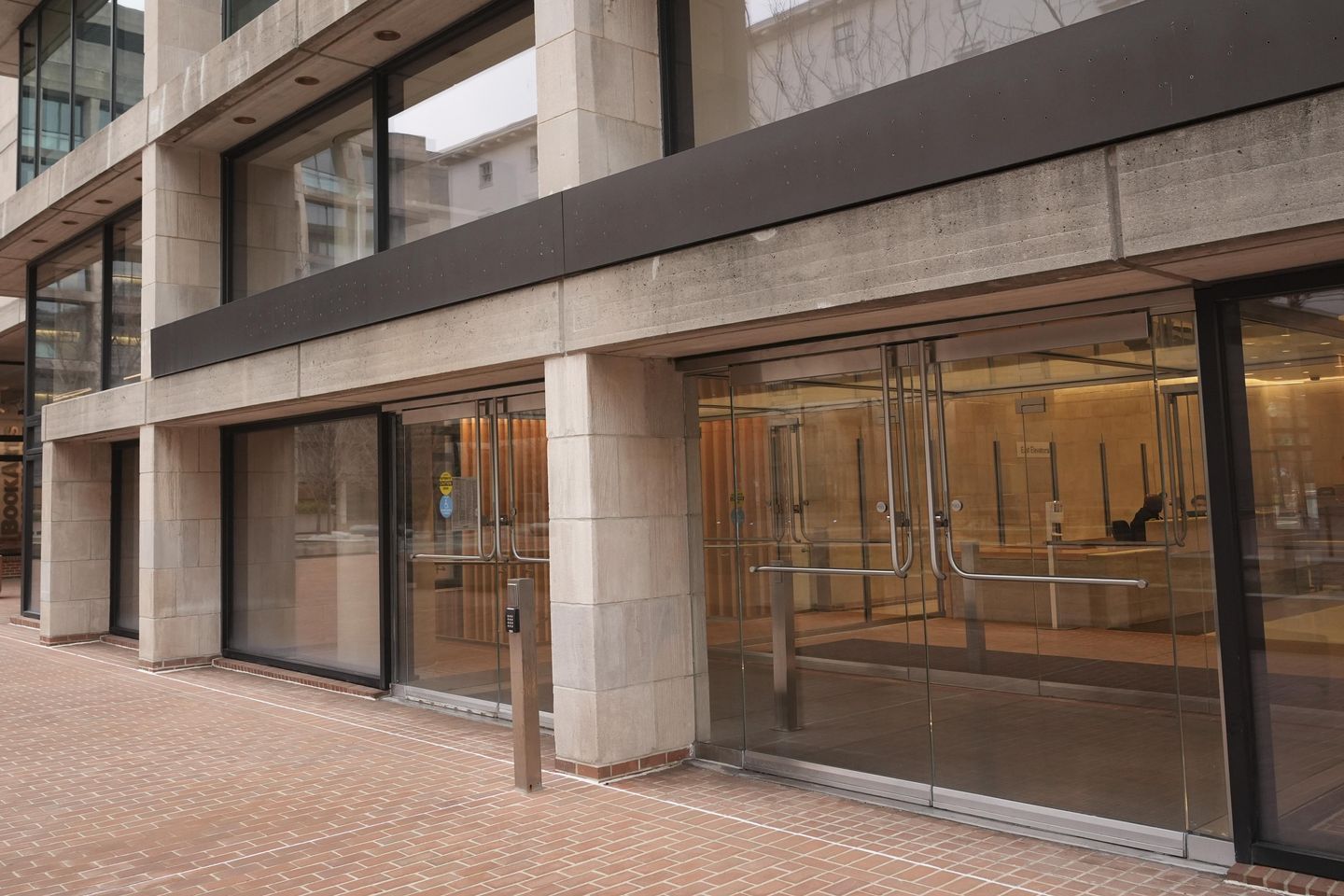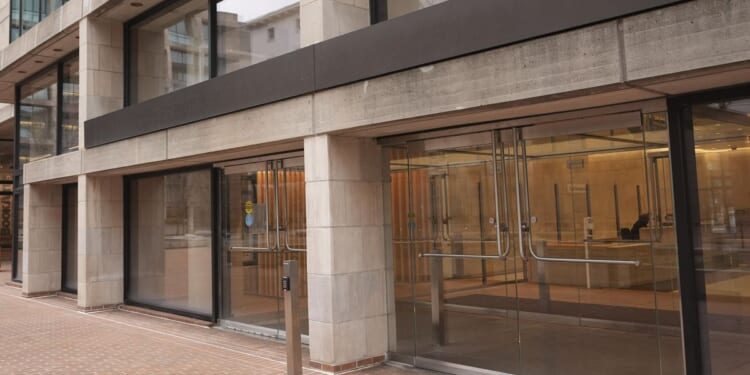
President Trump has railed against federal employees who telework, but his administration said it has been forced to allow dozens of employees to work remotely after it prematurely got rid of their old offices.
The employees work at the Consumer Financial Protection Bureau, which the Trump administration has moved to wind down. That included firing employees and shuttering regional offices in Atlanta, Chicago, New York and San Francisco.
But a judge last week issued a restraining order putting on hold the shutdown plans, leaving the administration scrambling to find places to put the bodies, since their offices are gone.
The answer is one Mr. Trump won’t love: Let them work remotely.
“The approximately 53 CFPB employees who worked out of those four regional offices have or will be provided with remote access to CFPB systems,” Brad Rosenberg, a special counsel at the Justice Department, said in a court filing Monday.
Call it shrinking pains — struggles the government faces as it rushes to slash personnel and save on the office space they occupied.
That includes the U.S. Agency for International Development. The Trump team shut down its headquarters in Washington, only to have a federal judge say the move was probably illegal because it was ordered by Elon Musk and the Department of Government Efficiency. Then an appeals court reversed that decision and gave tentative blessing to the closure.
Then there’s the U.S. Institute of Peace, another Trump target for cuts.
After major layoffs on Friday, the newly appointed head of the government-run think tank is now trying to return its $500 million headquarters building on Constitution Avenue in Washington to the government’s chief landlord at the General Services Administration.
The institute is fighting its own director, asking a judge to block the transfer and saying it’s up to Congress, not the president, to make decisions on USIP’s assets.
The CFPB situation highlights the tricky balancing act for the Trump White House, putting its rush to fire employees in conflict with its attempt to get other employees back to the office.
Trump officials have attempted similar firings at a host of other agencies, slashing tens of thousands of probationary employees.
A judge has ordered many of them rehired and brought back into their jobs — raising questions of whether there will be office space still waiting for them.
Tad DeHaven, an analyst at the Cato Institute and former co-editor of Downsizing Government, said the Trump team has taken a flood-the-zone approach to cutting government, and some hiccups are expected.
“What’s that old saying, ‘When you’re trying to make an omelette you have to break a few eggs?’ I think that’s what we see,” he said.
But he said the focus can be too much on job numbers and office space. The real yardstick, though, should be which programs and activities are being constrained.
“At the end of the day, the number of employees and buildings matters a lot less than what the government’s actually doing,” Mr. DeHaven said.
At the CFPB, acting director Russ Vought — who is also Mr. Trump’s budget chief — tried to do all of the above.
He ordered the agency to stop issuing new regulations and to halt investigations, even as he fired employees and shut the regional offices.
U.S. District Judge Amy Berman Jackson, an Obama appointee to the court in Washington, said Mr. Vought appeared to be working to permanently cripple the agency.
She said that ran afoul of orders from Congress, which created the agency through legislation.
“In sum, the court cannot look away or the CFPB will be dissolved and dismantled completely in approximately 30 days, well before this lawsuit has come to its conclusion,” she wrote.
She ordered fired employees rehired, leading to the space crunch and the turn to telework.
CFPB didn’t respond to a request for comment Tuesday.
Judge Jackson is also handling the USIP case.
She held a hearing Tuesday but put off a ruling on USIP’s demand that the transfer of the building be halted.
GSA faced its own hiccups last month when it issued a list of more than 400 properties it said were no longer needed in the federal portfolio.
After severe pushback, the agency trimmed the list dramatically, to eight. It has since added another eight properties to the list and says more are on the way.
“GSA employees are laser focused on supporting our partner agencies and providing the best value for the American taxpayer,” the agency said in a statement. “GSA is in constant communications with our customer agencies to ensure they are aware of our actions and have the opportunity to work with us to come to the best possible workplace solutions to support their mission.”






![Trump's Admin Guts Another ‘Rogue Government Agency with Zero Accountability’ [WATCH]](https://www.right2024.com/wp-content/uploads/2025/03/Trumps-Admin-Guts-Another-‘Rogue-Government-Agency-with-Zero-Accountability-350x250.jpg)
![‘We All Owe Him (Elon) a Huge Debt of Gratitude’ [WATCH]](https://www.right2024.com/wp-content/uploads/2025/03/‘We-All-Owe-Him-Elon-a-Huge-Debt-of-Gratitude-350x250.jpg)









